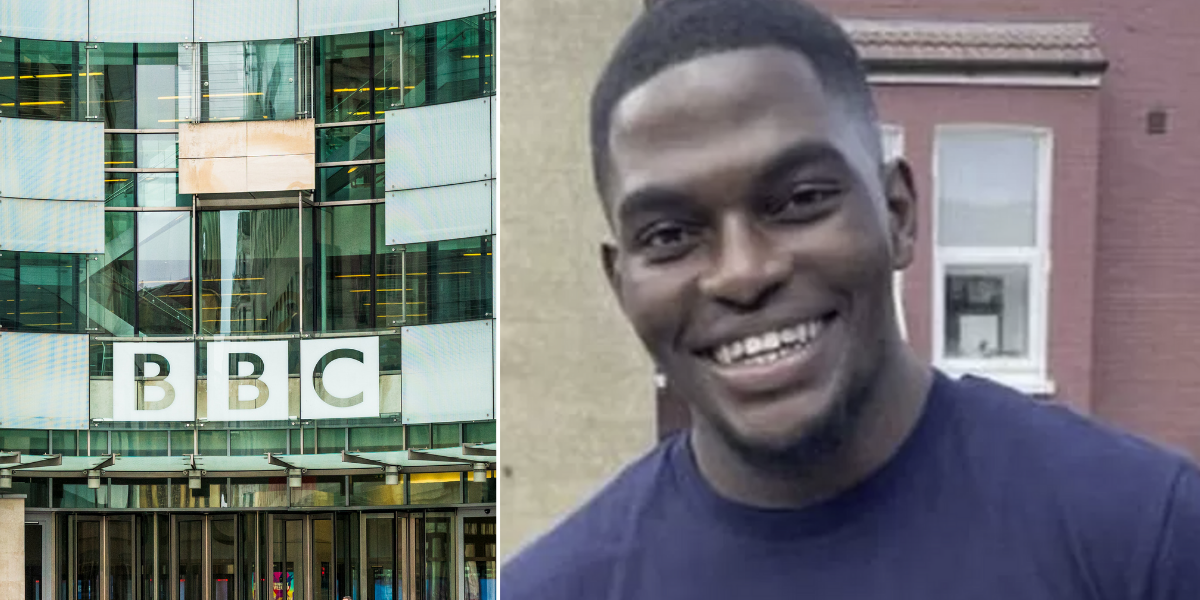Foreign Affairs
The new Tory leader is right about the past, but has yet to demonstrate an understanding of the core problems of the present.

One laughs at the absurdity of modern politics, as Peter Hitchens once wrote in his beautiful essay on the making of a reactionary, watching “tiny figures scuttling through cavernous halls built for much greater men.” I'm not sure how tall Kemi Badenoch is—although I have seen her in person several times, and IMDb is not correct that she is 6 feet tall. But in selecting a black Briton to be leader for the first time, the British Conservatives changed the politics of a country now indistinguishable from the U.S. and the greater Anglosphere.
Badenoch, the face of modern post-imperial Britain, a native-born minority conservative in a host including Suella Braverman, Priti Patel, and Rishi Sunak, a warrior against woke, a Ron DeSantis superfan, will cast a very long shadow over the Number 10 Downing Street, which currently hosts a PM who once took a knee in support of Black Lives Matter and just surrendered the British territory of the Chagos islands to some Third-World hellhole.
Purely from a sense of fair play, it is unsporting and perhaps unwise to judge Badenoch before she gets a chance to play her hand. I made no qualms about my support for Braverman, whom I still consider to be the smartest of the Conservative candidates and possibly will be, after Curzon, the best prime minister Britain never had. It was Braverman who understood the core problem with Britain. It’s not crime and mass migration; it’s subservience to the European Convention of Human Rights, which is tied around Britain like the chain binding Fenrir. Remove that, and the state can once again be truly democratic and free to take action against criminals within and invaders from without. For as long as Britain is ensnared by a constantly morphing idea of human rights determined undemocratically by European liberals, nothing is going to change.
Subscribe Today
Get daily emails in your inbox
Yet we haven’t seen Badenoch talk much about that. Yes, she’s correct about the empire and colonialism. “I don't care about colonialism because I know what we were doing before colonialism got there,” Badenoch was once reported to have said, adding correctly that prior to colonization there was never any concept of “rights”: “So those who lost out were old elites, not everyday people.” That is true. In her own words, there were terrible things during the empire, but also great things. Britain completely remade the modern world, from industry, to education and research, to common laws, archaeology, science, roads, steam engines, and railways, to fights against slavery and piracy, to destroying abhorrent social ills such as sati and the jizya. It was objectively the most liberal empire of all time. Any mention of that in history books is a taboo in modern Britain. So, in some ways, Badenoch is the first true face of post-imperial Britain.
But all that talk is irrelevant, because the maladies of Britain are not about how it views the past (although that is important in shaping the national narrative) but what is in store for the future. It is about tangible things, such as manufacturing, production capacity, military, higher education, housing, and healthcare. Britain has two perpetual core interests: to provide jobs and order within, and to promote a balance of power abroad, deterring any potential superstate next-door. The first interest is failing to be met due to the post-1945 elevation of human rights as a governing principle, the second because the British elite is internationalist to the point of self-loathing. Thus Britain has interestingly followed the trend of the greater Anglosphere, where native-born minorities have started to shift heavily to the right as a reaction to a section of native-born whites turning completely post-national.
Badenoch can change that if she truly cares. Britain provides her with an opportunity to share her narrative about state formation. Modern Britain's situation is similar to its situation the on the cusp of the industrial revolution. It is not united, it has no singular narrative, it has faced nonsensical wars, and it is not free. All of that can be changed swiftly. The way forward is essentially following the template of the past, creating industries, deregulating, encouraging private enterprise, and creating a new national elite. If Badenoch is smart enough, she will try to untie the chains or regulation and human rights that currently bind her land. Order will provide jobs, which will provide housing and help families, which will in time create a new national story.

 By The American Conservative (World News) | Created at 2024-11-05 05:05:11 | Updated at 2024-11-05 08:11:18
3 hours ago
By The American Conservative (World News) | Created at 2024-11-05 05:05:11 | Updated at 2024-11-05 08:11:18
3 hours ago



